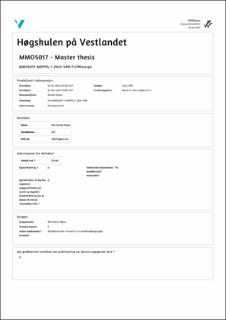| dc.description.abstract | Simulators play a significant role in maritime education, widely utilised worldwide by maritime institutions. The International Maritime Organization (IMO) highly recommends and even mandates their use in certain cases. There are numerous studies to assess the efficacy of simulators. Real-world vessel training is a requirement set by the IMO. Many schools face the challenge of limited access to actual vessels. To acquire the certificates, students must still complete the necessary sea service during or after graduation. There is a need for research on the effectiveness of real-world navigation training tailored explicitly to nautical students.
The Royal Norwegian Navy (RNoNA) has been utilizing real-world vessels and simulators for training in practical navigation for decades. This study examines the impact of the combination of simulators and real-world vessels on the knowledge and skill development of nautical students in the RNoNA. The research project explores the optimal approach for training students in practical navigation. It addresses specific questions regarding the justification of resources invested, the adequacy of simulator training alone, and ways to enhance the utilization of simulators and real-world training in the RNoNA. The study employs a systematic literature review, qualitative surveys, and semi-structured interviews.
Findings reveal that the combination of simulator sessions and real-world training provides a solid foundation for students' future roles in the Navy. The study also shows that simulators cannot fully replicate certain aspects. Although the practical navigation training at the RNoNA is of high quality, improvements in platform utilization are needed. For instance, recommendations include prioritizing extensive training in a simulated environment early in the semesters and introducing real-life platforms later for more efficient utilization.
This study highlights the importance of enhancing the learning experience for nautical students through the effective utilization of simulators and real-world training. | en_US |

